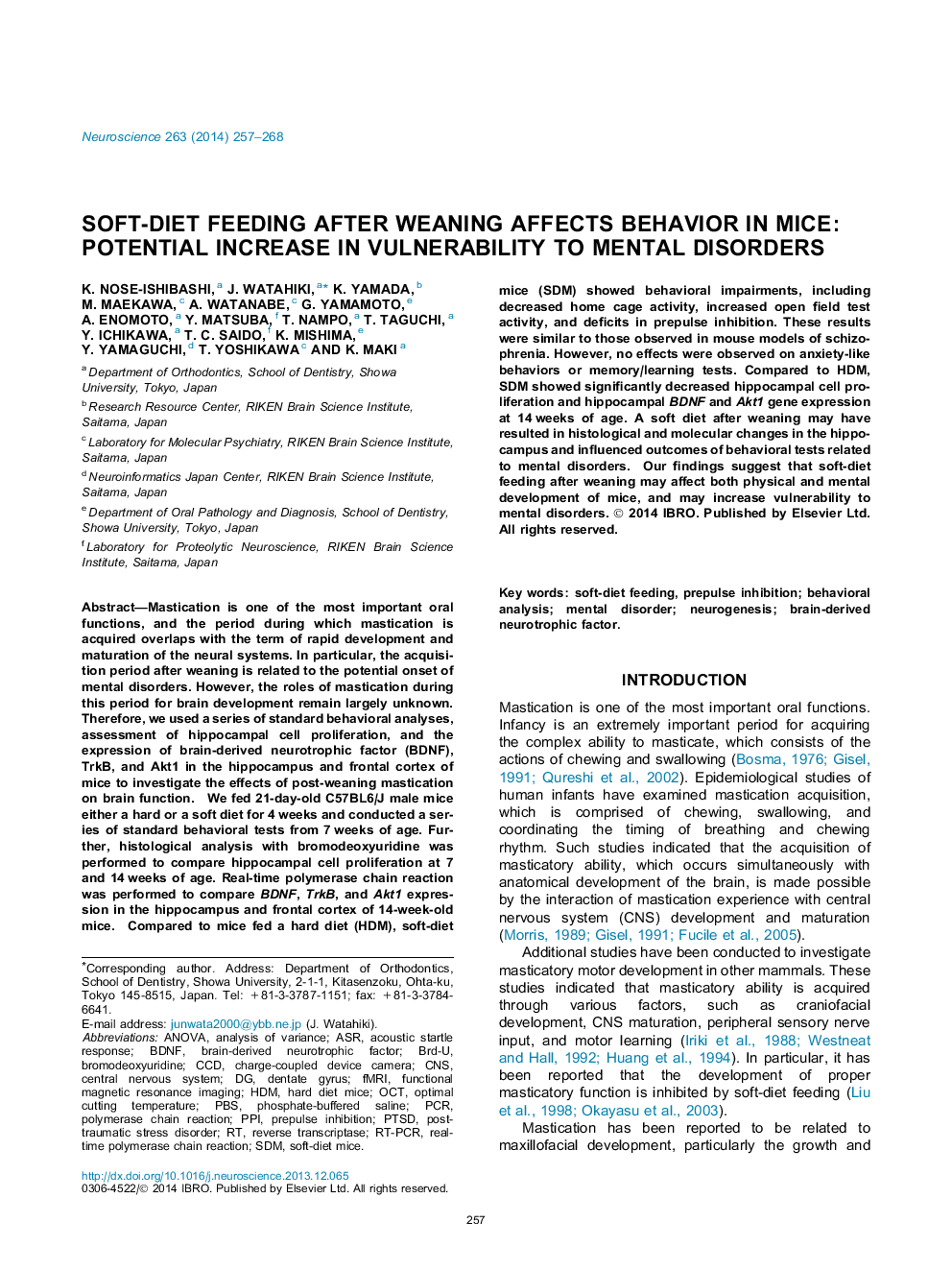| کد مقاله | کد نشریه | سال انتشار | مقاله انگلیسی | نسخه تمام متن |
|---|---|---|---|---|
| 4337750 | 1614813 | 2014 | 12 صفحه PDF | دانلود رایگان |
• We demonstrated a relationship between soft-diet feeding after weaning and behavioral abnormalities in mice.
• Male mice fed a soft diet showed significantly decreased prepulse inhibition.
• Decreased hippocampal neurogenesis and BDNF gene expression were observed in mice fed a soft diet.
• A soft diet after weaning may be related to vulnerability to mental disorders.
Mastication is one of the most important oral functions, and the period during which mastication is acquired overlaps with the term of rapid development and maturation of the neural systems. In particular, the acquisition period after weaning is related to the potential onset of mental disorders. However, the roles of mastication during this period for brain development remain largely unknown. Therefore, we used a series of standard behavioral analyses, assessment of hippocampal cell proliferation, and the expression of brain-derived neurotrophic factor (BDNF), TrkB, and Akt1 in the hippocampus and frontal cortex of mice to investigate the effects of post-weaning mastication on brain function.We fed 21-day-old C57BL6/J male mice either a hard or a soft diet for 4 weeks and conducted a series of standard behavioral tests from 7 weeks of age. Further, histological analysis with bromodeoxyuridine was performed to compare hippocampal cell proliferation at 7 and 14 weeks of age. Real-time polymerase chain reaction was performed to compare BDNF, TrkB, and Akt1 expression in the hippocampus and frontal cortex of 14-week-old mice.Compared to mice fed a hard diet (HDM), soft-diet mice (SDM) showed behavioral impairments, including decreased home cage activity, increased open field test activity, and deficits in prepulse inhibition. These results were similar to those observed in mouse models of schizophrenia. However, no effects were observed on anxiety-like behaviors or memory/learning tests. Compared to HDM, SDM showed significantly decreased hippocampal cell proliferation and hippocampal BDNF and Akt1 gene expression at 14 weeks of age. A soft diet after weaning may have resulted in histological and molecular changes in the hippocampus and influenced outcomes of behavioral tests related to mental disorders.Our findings suggest that soft-diet feeding after weaning may affect both physical and mental development of mice, and may increase vulnerability to mental disorders.
Journal: Neuroscience - Volume 263, 28 March 2014, Pages 257–268
